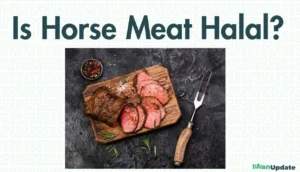Are Planters Peanuts Halal? A Comprehensive Guide

Welcome to this in-depth guide on whether Planters Peanuts are halal. As the demand for snacks that meet dietary needs grows, people following halal, vegetarian, and vegan diets often scrutinize food labels carefully. Peanuts, being plant-based, might seem like a simple option. However, not all packaged peanuts are suitable for those adhering to halal guidelines.
This article explores the ingredients in Planters peanuts, the use of gelatin, regional variations in halal certification, and offers alternatives for halal-conscious consumers. If you’re searching for halal-friendly snacks, this guide will help you make informed decisions.
Is Planters Peanuts Halal? Unpacking the Ingredients
At first glance, peanuts and salt may seem like the only ingredients in a packet of Planters Dry Roasted Peanuts. However, a closer look at the ingredients list reveals the inclusion of pork-derived gelatin, which makes some varieties haram (forbidden in Islam).
Gelatin is a binding agent that ensures spices stick to the peanuts. Unfortunately, the gelatin used by Planters comes from animal by-products like pork skin, hooves, or bones.
This ingredient poses a challenge not only for Muslim consumers but also for those following vegetarian or vegan diets.
Many people are surprised to learn that even a product as seemingly straightforward as roasted peanuts could contain non-halal ingredients. Because gelatin is haram, it makes the entire product unsuitable for consumption under Islamic dietary laws.
It’s important to note that not all Planters products contain gelatin. Some plain or salted peanuts might be free from animal derivatives.
However, the Dry Roasted version remains a concern for halal consumers. The spices, maize syrup, and gelatin found in this product compromise its status as a halal-friendly snack.
When examining food labels, always look beyond the primary ingredients. Even products that seem to align with plant-based diets may contain hidden animal-based additives. This highlights the importance of ingredient awareness for those who are serious about halal compliance.
READ ALSO: Are Twizzlers Halal? A Detailed Guide for Muslims
Planters Peanuts in Muslim-Majority Countries: Are They Halal?
In Muslim-majority countries like Saudi Arabia, UAE, Indonesia, and Pakistan, the version of Planters peanuts sold may have a different recipe. These products are often halal-certified by local Islamic authorities to comply with regional dietary requirements.
This is a common practice among multinational brands, as they modify ingredients to meet the religious and dietary preferences of specific markets.
If you are shopping in these countries, check for halal certification logos on the packaging. These certifications assure consumers that the product is free from haram ingredients, such as pork-derived gelatin.
In many cases, the local formulation uses plant-based adhesives or other binders that do not violate halal guidelines.
This approach ensures that Muslim consumers in these regions can enjoy Planters snacks without compromising their religious principles. However, it is important to note that the same product sold in Western countries may have different ingredients and may not carry the halal certification.
This can be confusing, especially for consumers traveling between regions or purchasing imported goods.
For this reason, checking labels carefully remains essential. Even if a product looks identical to its counterpart in another region, the ingredients might differ significantly. It’s also helpful to contact the manufacturer for clarification or visit the official website to confirm the halal status of specific products sold in your country.
Why Gelatin is Used in Dry Roasted Peanuts
Many people wonder why a simple snack like dry roasted peanuts would need gelatin. Gelatin is used as a binding agent to help the salt and spices adhere evenly to each peanut, enhancing flavor and texture. It creates a thin, sticky coating that makes the product more appealing to consumers by ensuring consistent seasoning across every bite.
Gelatin is typically made from collagen extracted from the bones, skin, and connective tissues of animals. In most cases, commercial gelatin is sourced from pork or beef.
In the case of Planters Dry Roasted Peanuts, the gelatin used contains pork by-products, making it unsuitable for halal consumption.
The presence of gelatin in these peanuts is a reminder to scrutinize packaged foods, even those that seem straightforward. As many processed foods contain hidden animal-derived ingredients, reading ingredient lists carefully is a vital habit for halal-conscious consumers.
It is also worth noting that plant-based binders are available, but they are less common in commercial snacks. Some manufacturers use modified starches, gum arabic, or agar-agar instead of gelatin.
These alternatives are more suitable for vegetarian, vegan, and halal diets, and can easily achieve the same adhesive properties.
Halal Alternatives to Planters Peanuts
If you’re following a strict halal diet, there are several ways to enjoy roasted peanuts without compromising your values. One simple solution is to roast peanuts at home.
This way, you can control the ingredients and ensure that your snack remains halal. Use salt, spices, and a touch of oil for an easy homemade version.
Additionally, some nut brands offer halal-certified products. Brands like Blue Diamond Growers, Wonderful Pistachios, and Al-Rifai are known for their clean ingredient lists and may carry halal certifications in some regions. Always check for the halal logo on the packaging to ensure compliance.
Another helpful tip is to look for unsalted or lightly salted peanuts with simple ingredient lists. These versions are less likely to contain animal-based additives. Many organic and specialty nut brands focus on minimal processing, making them a safer option for halal-conscious consumers.
For those who enjoy variety, consider switching to other nut-based snacks like almonds, pistachios, or cashews. These nuts are less likely to be processed with gelatin or other non-halal binders.
Exploring these alternatives ensures that you can enjoy a tasty snack while remaining true to your dietary principles.
Frequently Asked Questions (FAQs)
1. Are all Planters products haram?
Not all Planters products are haram. Some varieties, such as plain salted peanuts, may not contain animal-based ingredients. However, Dry Roasted Peanuts contain pork-derived gelatin, making them haram. Always check the label for clarity.
2. How can I identify halal products?
Look for a halal certification logo on the packaging or check the ingredients list for hidden animal-based products. If in doubt, contact the manufacturer for more information.
3. Are Planters peanuts in Muslim countries halal?
Yes, Planters products sold in Muslim-majority countries like Saudi Arabia and Indonesia are often halal-certified. These products usually contain different ingredients to meet local halal standards.
4. What are good halal alternatives to Planters peanuts?
Some great alternatives include Blue Diamond Growers, Wonderful Pistachios, and Al-Rifai. You can also make your own roasted peanuts at home with salt and spices to ensure they are halal.
Conclusion: Making Informed Choices for Your Halal Diet
Planters peanuts, especially the Dry Roasted variety, contain gelatin derived from pork, making them unsuitable for halal consumption. However, many alternative brands and halal-certified options are available for those seeking safe snacks.
Whether you are purchasing nuts in your home country or abroad, always check the ingredients list and look for certification logos. For added peace of mind, consider making your own roasted peanuts at home or opting for brands known for their simple, clean ingredients.
By staying informed and reading labels carefully, you can confidently navigate your food choices and ensure they align with your halal principles.






